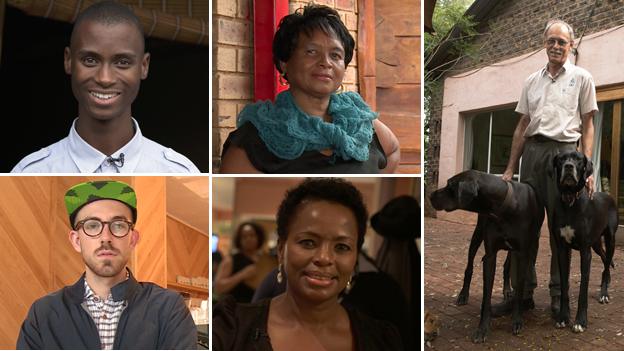Working Lives: South Africa
- Published

It is 20 years since South Africa held its first non-racial elections which ended white rule and saw the transfer of power to the African National Congress.
In those two decades, the country has come a long way but still faces many problems.
While many blacks have moved up the economic ladder, poverty remains high, tensions still exist between blacks and whites in some areas and South Africa has one of the highest number of HIV/Aids patients in the world.
For Working Lives, the BBC's Lerato Mbele travelled to Johannesburg to meet five very different South Africans living and working in and around the city.
Hair salon entrepreneur Mankwane Chakela is a proud member of South Africa's growing black middle class. She grew up in a township but now lives in one of Johannesburg's more affluent suburbs.
Hoping to make a similar transition is Jeff Mulaudzi, who runs tours of Alexandra, one of Johannesburg's sprawling townships.
He spotted a gap in the market for adventurous tourists wanting to see the real South Africa and now shows small groups around his neighbourhood.
Another part of the city undergoing a revival is Johannesburg's Central Business District where Nick Christowitz caters to a multi-racial clientele in his impeccably designed and achingly cool cafe.
School choir mistress, Makgopa Gomba, had to flee her township home in the last years of the apartheid era on account of her husband's job as a policeman.
But now, she is back and working in the local community.
White farmer Louis Meintjes says he can trace his South African heritage back to the 1730s.
Farming has never been an easy life but in the past it was more certain.